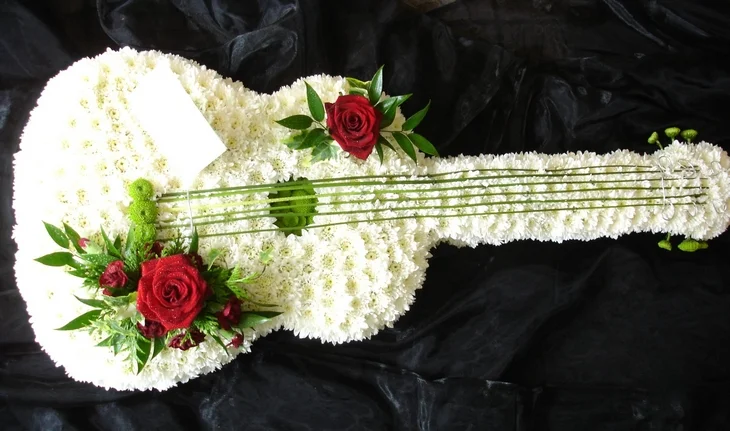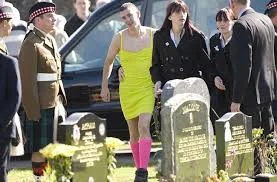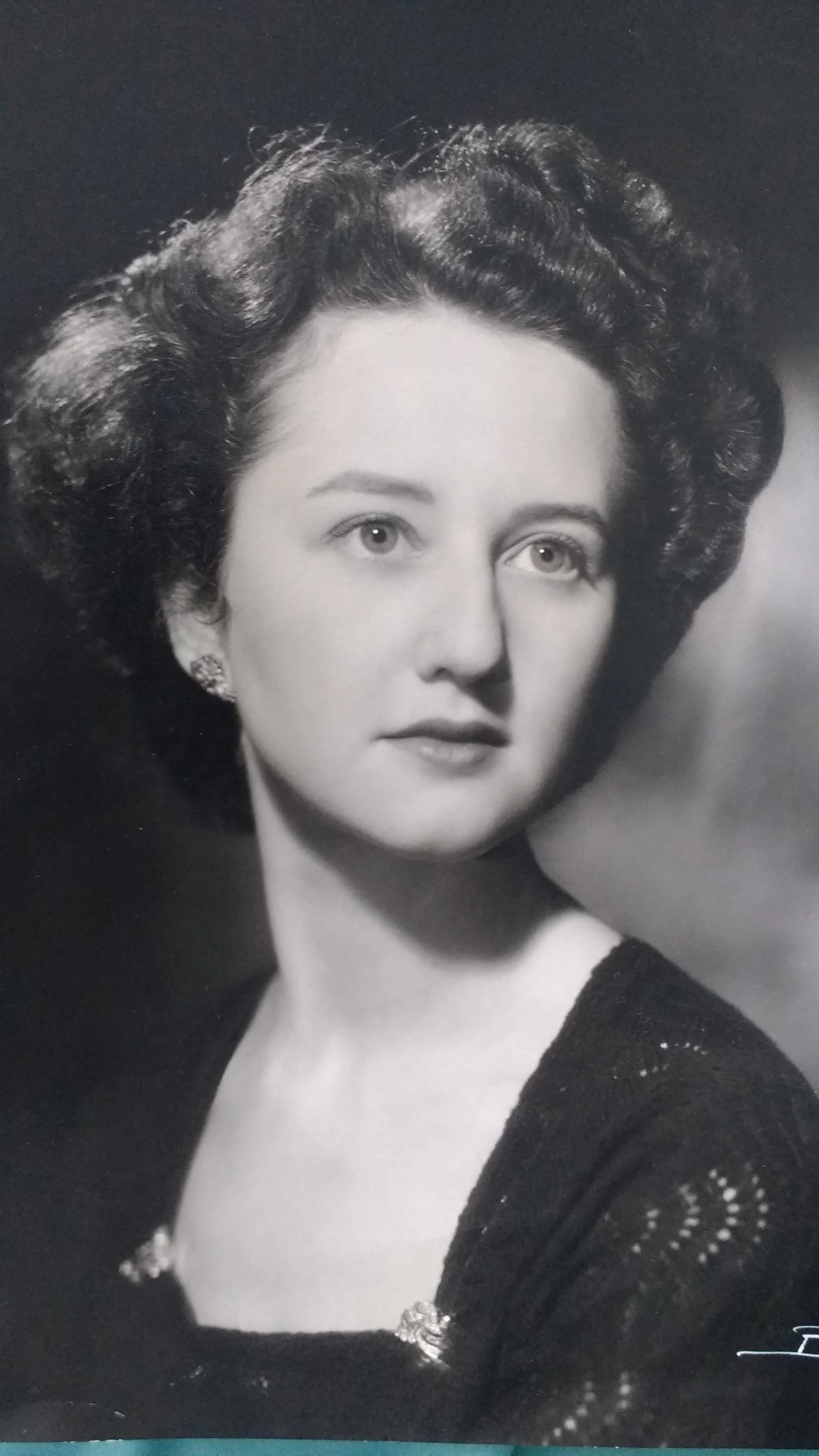By The Landlord
“If any of you cry at my funeral, I'll never speak to you again.” – Stan Laurel
“Many old music hall fans were present at the funeral today of Fred 'Chuckles' Jenkins, Britain's oldest and unfunniest comedian. In tribute, the vicar read out one of Fred's jokes, and the congregation had two minutes silence.” – Ronnie Barker
“There will be no funeral! Before I get too old and ill, I'll go to South America and live among the Pemon people and meditate. When the time is right, they can throw my body into the volcano.” – Brian Blessed
Just as there are many ways to die, there are just as many ways to say goodbye. But what songs would play at your funeral? Would they be in a style that is sombre and mournful, or something altogether different? This week we’re looking some of the many musical ways to pay final respects to the dead. So then, a sorrowful, sober procession, or an upbeat, drunken, dancing celebration? Music choices at funerals might be made in advance by those who have passed away, but more often chosen by loved ones as a way to reflect on life, to represent something they liked, to comment on the passage of time, to capture waves of joy and woes, the highs and lows, the circularity of it all, and above all, to find a form of finality and firm up emotions. But what is right, or wrong in such circumstances? And what songs capture those universal feelings that seem hit just the right note?
Flowers to pull on the heart strings
We have previously covered the topic of songs of remembrance and elegies, which were superbly playlisted, and also elsewhere there have been songs about particular funerals or deaths, but this topic is somewhat different – it is more about what songs, on any subject, style or with any perspective, would work well for emotions, or thoughts, or feelings, on such an occasion.
Should funeral music stir up emotions, help tears flow, be meditative, reflective, stir energy, anger, bring catharsis, or offer a form of ethereal, transcendent escape? And what should lyrics say for those in attendance, about life's passing? One funeral service has even done a survey on what trends have changed in this regard, from the cliché to catharsis, black humour to traditional hymn. So such songs include Frank Sinatra's My Way to Nat King Cole's Unforgettable, but also TV sports theme tunes such as Match of the Day, or AC/DC's Highway to Hell, or Eric Idle singing Always Look On The Bright Side of Life in Monty Python's Life of Brian. But above all, the chosen music has an emotional effect, saying something about the departed as well as those who are there to witness their final farewell.
Play it with flowers
And in light of this, while death is very much in the public consciousness at the moment, with terror attacks to the Grenfell Tower fire, I confess this topic comes up now because, set up in advance, the very moment, today, it goes out, I am saying farewell to my own mother, who died a few weeks ago. A funny, sensitive, kind, tactful, but also very talented woman with a twinkle in her eye, who played and taught the piano, loved a good laugh, listened, lived for music and talking and walking, and liked to break in to a spontaneous dance. I’ll reveal a small sample of musical choices for her funeral below, but in the meantime, let’s welcome a few characters into the bar to talk about ways to mark people’s passing, and whether or not it is possible, or appropriate, among other moods and perspectives, to put back the fun in funereal. After all what is this all for? It is not for those who have departed, it is for those who remain, and what effect it has on them.
“That's right. But why is it that we rejoice at a birth and grieve at a funeral? It is because we are not the person involved.” says the writer Mark Twain, getting in the first round. “Ah well,” says the writer Frank McCourt, joining him now with a couple of whiskies. “In my experience, a funeral was a great form of entertainment. A wake was a great form of entertainment.”
“If that’s the case,” says Rick Wakeman, strolling tall into the scene, adjusting his massive cape and cracking his long fingers in front of the Song Bar’s piano, “When I die, I'll probably climb out of the coffin and play the organ at my own funeral.”
Some cultures have very contrasting forms of such ceremony, from short services of silence to those with music and celebration of life that can last for weeks. The style in New Orleans, most obviously, is to strike a unique balance between joy and grief as mourners are lead by a marching jazz band. The band plays sorrowful dirges at first, but once the body is buried, they shift to an upbeat note. Cathartic dancing is generally a part of the event, to commemorate the life of the deceased.
The Benguet of Northwestern Philippines meanwhile take a more radical approach. They blindfold their dead and place them next to the main entrance of the house; their Tinguian neighbours dress bodies in their best clothes, sit them on a chair and place a lit cigarette in their lips. The Caviteño, who live near Manila, bury their dead in a hollowed-out tree trunk. When someone becomes ill, they select the tree where they will eventually be entombed. Meanwhile, the Apayo, who live in the north, bury their dead under the kitchen. So the departed haven't quite yet departed. They stay to be present at the celebrations.
Life's finish: A Ghana fantasy coffin, one of many shapes, sizes and themes
Or there are the Ghanaian fantasy coffins, in which bodies are placed in something less like a box, more which represents their work or something they loved in life, including for example a man’s corpse placed in a Mercedes Benz. Car songs? No shortage of funeral music for that guy.
In Ohio, Billy Standley loved his Harley-Davidson 1967 Electra Glide cruiser motorcycle quite a bit. So much so that he spent the last years of his life planning his burial on it. The last rites involved buying three cemetery plots and designing a custom-made Plexiglas casket. A team of five embalmers prepared Standley for his final ride, mounting his body on the bike and dressing him in leather biking gear and a helmet. He led the procession to the cemetery. Keep the motor running …
Highway to heaven? Billy Standley leads his own funeral procession with Harley-Davidson glass casket
Meanwhile what music accompanies the sky burial tradition in Mongolia and Tibet? Many Vajrayana Buddhists believe in the transmigration of spirits after death — that the soul moves on, while the body becomes an empty vessel, so the body is left on a mountaintop structure to be rotted by the elements and consumed by vultures. Would that leave you on high?
And what is an appropriate way to dress at a funeral? British soldier Barry Delaney turned up to the graveside farewell of best friend Private Kevin Elliott in September 2009, he did so wearing a tight fluorescent lime dress, that was matched with equally bright pink leg warmers and black hiking boots. Why? It was a mutual arrangement made between them, with gallows humour, in case either of them died first. Ellliott died in Afghanistan. Strangely comical, but rather moving.
Soldier soldier Barry Delaney keeps a jokey promise to his best friend to wear a garish dress at the funeral in 2009
The mournful style of western funerals has been much criticised as unnatural and inappropriate to the human condition. Jessica Mitford, in her famous book The American Way of Death, attacked the commercialisation of funerals and how the industry put unnecessary pressure on relatives. “Gracious dying is a huge, macabre and expensive joke on the American public.” Meanwhile, here’s Steve Earle: “It amazes me that the most Christian funerals are the most barbaric funeral rites of passage that are celebrated anywhere in the world.”
And here comes Bjork, who makes a point regarding her own end: “The funeral business is so manipulative emotionally. I would want to be thrown into the sea or burned — something that's not a big hassle.”
BB King was of a similar mind: “If my fans want to do something for me when that time comes, I say, don't waste your money on me. Help the homeless. Help the needy... people who don't have no food... Instead of some big funeral, where they come from here and there and all over. Save it.”
So is funeral better if it is grand? Or loud? Or quiet? Or full of ‘grace’? While hymns and poems often come up, and classical music, what would make this topic interesting if songs that seem appropriate life’s passing in any other genre, from pop to punk, reggae to ragga, folk to funk, or anything else. That's where you, congregation of wise and learned readers, come in.
But one great tragedy is that possibly the greatest musical talent of all time, Wolfgang Amadeus Mozart died without a proper funeral at all. He died penniless, and was simply thrown into a music-free pauper’s grave. That’s certainly a very good reason to say that musical ways to mark any person’s passing are always important.
Which leaves me to reveal two of the pieces coming up in my own person circumstances today. First, to reflect, express beauty and grace, and to play out sounds that my mother herself made on the piano, the divine sound of Chopin’s Nocturne No 2 in E Flat Major, a piece that transcends life, and somehow says more than words can ever do:
But passing from this life need not be filled with sadness. And as she finally joins my father, who died more than two years ago, I’d like to think that she’s back with him, somehow, somewhere, in their own heaven, and having a little dance. How? Well, very much in the style of this charming man, a figure she idolised as a young girl in the 1930s and 40s, Fred Astaire:
And with that, I hand over this week’s marvellous master or ceremonies and minister of music, Uncleben, who will act as our funeral director over the next few days to find songs that celebrate and commemorate life’s passing or finally say farewell. Place your songs on the proverbial plate offering in comments below by last orders (11pm UK time) on Monday, in time for playlists published on Wednesday. We are gathered here to celebrate the life of music.
My mum in her glamorous youth
Goodbye, Mum. I love you.
New to comment? It is quick and easy. You just need to login to Disqus once. All is explained in About/FAQs ...
Fancy a turn behind the pumps at The Song Bar? Care to choose a playlist from songs nominated and write something about it? Then feel free to contact The Song Bar here, or try the usual email address.







